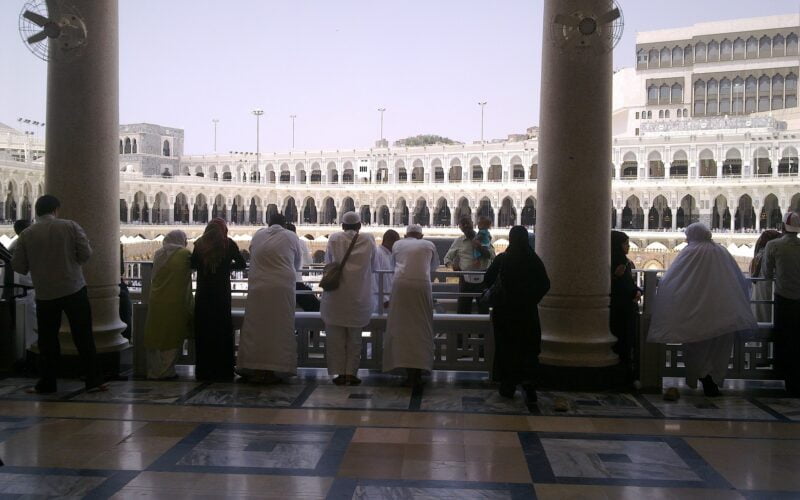Saudi Arabia’s Ministry of Hajj and Umrah clarified, on Monday, March 20, that no permits are required to offer prayers at Masjid al-Haram in Makkah and Masjid an-Nabawi in Madina during the last ten days of the holy month of Ramadan.
As reported by Saudi Gazette, the Department for Beneficiary Care Service under the ministry stated this through its official Twitter account in response to questions from the worshippers.
The department, in its statement, said that permission is not required to pray in the Two Holy Mosques. However, worshipers must still meet the condition that they do not have a coronavirus infection or contact with an infected person.
At the same time, the Ministry of Hajj emphasized that permission is still mandatory for pilgrims who wish to perform the Umrah pilgrimage or visit Rawdah Sharif at the Prophet’s Mosque. The worshippers can obtain this permit through the Nusuk application or the Tawakkalna application, with the same health condition: not being infected with the Coronavirus or having contact with an infected person.
Previously, the General Presidency for the Affairs of the Two Holy Mosques announced registration for pilgrims who wish to carry out Itikaf at Masjid Al-Haram and Masjid an-Nabawi, which will begin on March 18, 2023, through the Nusuk application and the official Nusuk.sa website.
The Itikaf registration program will reportedly close on the 10th of Ramadan, which marks the program’s start.
In addition to issuing rules regarding Itikaf, the Saudi government, which seems to want to change the image of the approach to the Holy Month this year, also released a list of guidelines and other restrictions on Ramadan celebrations this year, such as banning donations to the mosque for Iftar food for worshippers, no broadcasting of prayers, prohibiting bringing children to mosques, to limiting the volume of the loudspeaker for Azaan.
Several directives ahead of Ramadan 1444 Hijriah, announced directly by the Saudi Minister of Islamic Affairs, Sheikh Abdullatif bin Abdulaziz Al-Alsheikh, do not seem well received by Muslims worldwide, especially Saudi Arabian citizens.
Explicitly limiting the volume of the call to prayer, critics say this is an attempt by the Saudi government to reduce the influence of Islam in public life by imposing restrictions that have long been used by countries such as the former Soviet Union and Tunisian dictator Zine El Abidine Ben Ali.




 WhatsApp Channel
WhatsApp Channel
 Instagram
Instagram
 Facebook
Facebook
 X (Twitter)
X (Twitter)
Salaam Sister.please can you mail me.I am having difficulty to register to sit itikaaf in Madinah
Wa alaikum assalam Mohamed Riaz,
I understand your concern about registering for itikaf in Madinah during the last 10 days of Ramadan. It can be challenging to navigate the registration process, but I recommend reaching out directly to the mosque administration or the relevant authorities for assistance. InshaAllah, they will be able to guide you through the registration process and ensure that you are able to participate in this blessed act of worship. May Allah make it easy for you and grant you the opportunity to engage in itikaf in Madinah. Ameen.